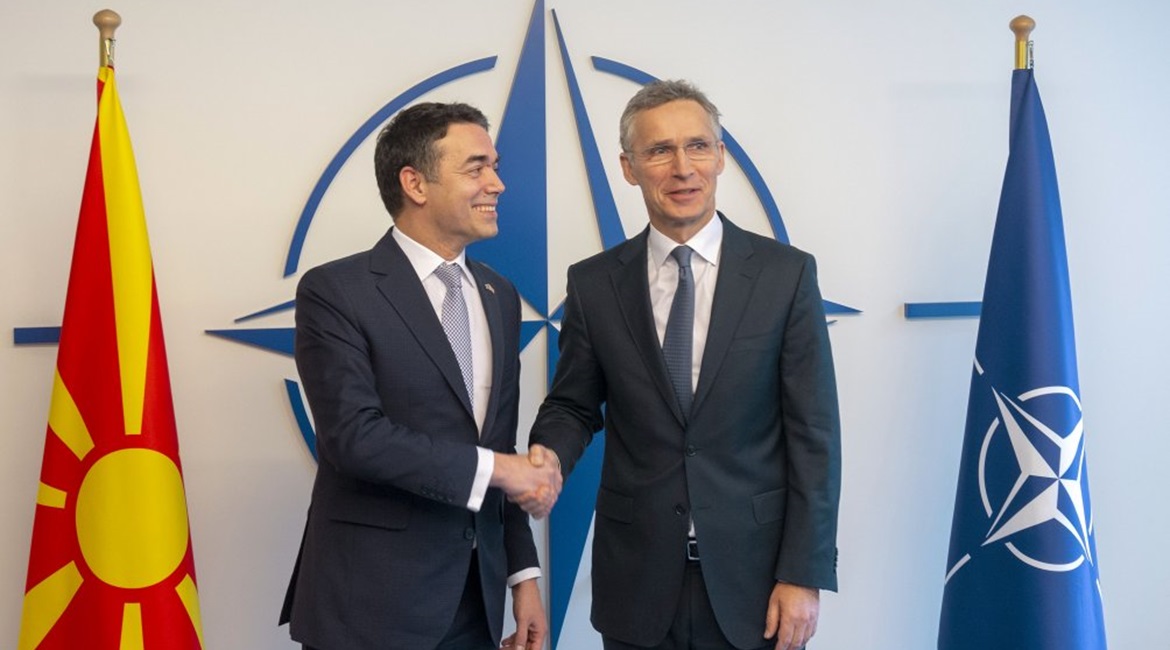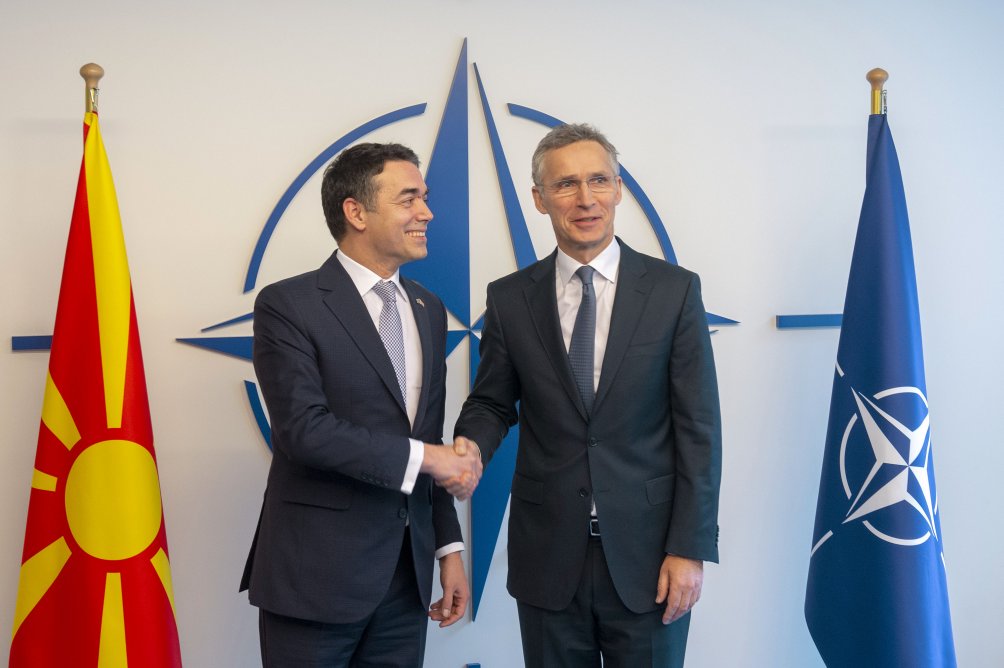
The 29 NATO ambassadors signed the accession protocol for Macedonian membership in the alliance in the presence of the country's foreign minister, Nikola Dimitrov, at NATO headquarters in Brussels on 6 February.

The accession protocol for Macedonian membership in NATO was signed on 6 February in the presence of the country's foreign minister, Nikola Dimitrov (left, shaking hands with Secretary General Jens Stoltenberg). (NATO)
Meeting the press with Dimitrov after the signing, NATO Secretary General Jens Stoltenberg said Macedonian membership would increase the stability of the Western Balkans. Dimitrov pledged to “do our part when it comes to NATO missions” and to make the region “more predictable, more stable, more prosperous”.
Stoltenberg said Macedonian participation in NATO meetings as an invitee would begin immediately, including attendance by Defence Minister Radmila Sekerinska in a ministerial with her allied counterparts in Brussels on 13–14 February and Prime Minister Zoran Zaev in the NATO summit in London in December.
Stoltenberg pointed out that Skopje was already participating in NATO exercises, missions, and operations including in Afghanistan, implementing reforms to modernise its defence and security institutions and armed forces, and increasing defence spending, with a commitment to reach the NATO goal of 2% of GDP by 2024.
Dimitrov added that Skopje has a new strategic defence review, is working on defence planning, has increased defence spending by 2% compared with 2018, and would exceed 2% before 2024. Macedonian participation in the previous NATO International Security Assistance Force (ISAF) was at one point the fourth highest per capita, mainly providing headquarters protection in Kabul, according to Zaev.
Looking to read the full article?
Gain unlimited access to Janes news and more...




